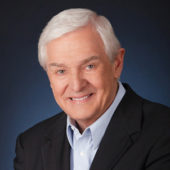If you’re not personally struggling with negative emotions, you probably know someone who is. It is the nature of our fallen world that mental suffering is a reality for many. The Bible details the stories of faithful saints who experienced times of darkness and despair. And as evident in the Bible, humans are complex creatures, with a body, mind, spirit and eternal soul.
The best approaches to healing for individuals are those that are multifaceted, says, Dr. Gregory Jantz, founder of The Center: A Place of HOPE, in the state of Washington. For about 36 years, the Center has treated those who seek to overcome depression, anxiety, eating disorders, and the similar issues. A pioneer in mental health care, Gregory talks with Dr. Jeremiah Johnston about what is a common need.
“The World Health Organization says depression is the number one disability in the world. It can be hard to admit you’re struggling. If you’re suffering from depression, we have more resources and more ways of treatment than ever before.”
Clients seeking help benefit from care that centers around their medical, spiritual, nutritional, and social needs. Counseling about past issues that are manifesting as things like bitterness and hypersensitivity is helpful as well. Gregory encourages sufferers and caregivers to seek help. Long-term, successful treatment most often involves personal faith, he says.
In a similar vein, Jeremiah advises listening, or what he calls an ‘engagement principle.’
“Ask questions and allow the other person to be the expert. The best technique to use with anyone who you feel is struggling is to ask questions. People respond so much better to questions than assertions.”
Anyone who is struggling will also benefit from listening to God’s words to them, found in the precious promises of the Bible. Through a relationship with Christ we are able to find our true source of hope.
Dr. Gregory Jantz is founder of The Center: A Place of HOPE, a speaker, and author of more three dozen books, including “Healing Depression for Life.”
Discussing depression for a ray of hope



















